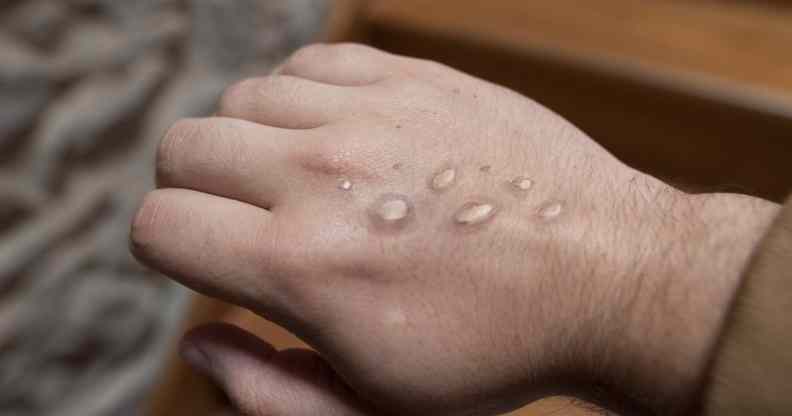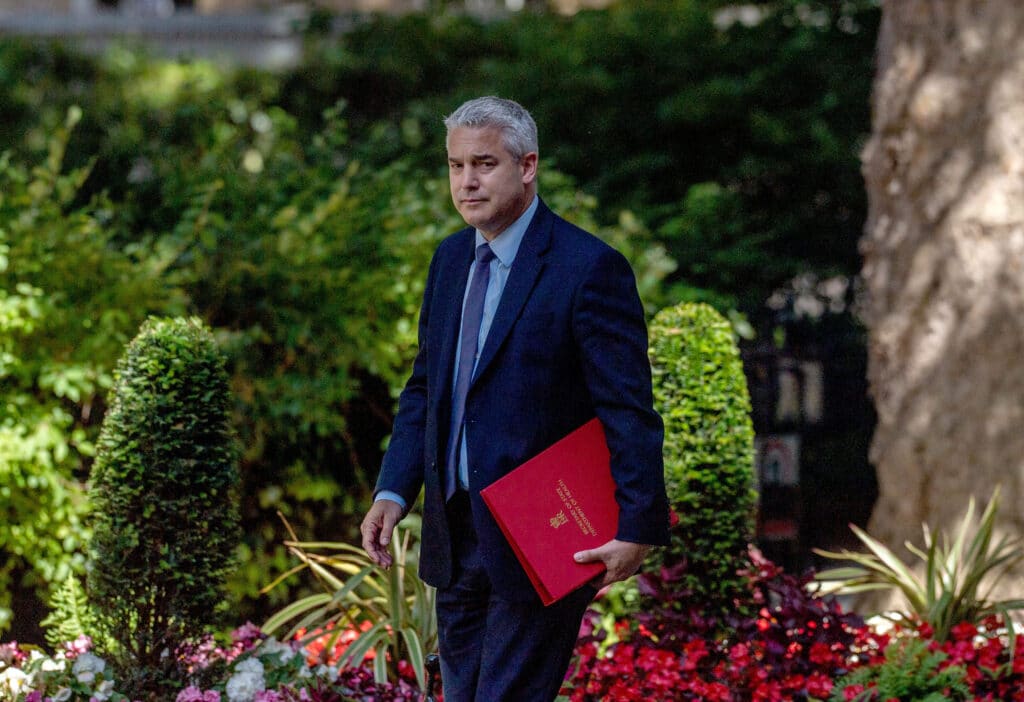Monkeypox ‘could become endemic’ if government doesn’t take ‘urgent action’, health groups warn

Monkeypox lesions. (MarioGuti/Getty Images)
As UK monkeypox cases reach 1,700, leading sexual health groups have condemned the government’s lack of urgency in tackling the outbreak.
As of Monday (11 July), there are at least 1,756 confirmed monkeypox cases in the UK, according to health officials, with numbers doubling roughly every 15 days.
In a joint letter to health secretary Steve Barclay as well as NHS and UK Health Security Agency (UKHSA) bosses, leading sexual health groups have urged the Department of Health and Social Care to inject extra funding to stem the outbreak.
“Urgent action is needed to prevent monkeypox from becoming endemic in the UK and super charge the targeted vaccine programme for gay and bisexual men,” the groups said, calling for £51 million in funding to keep on top of climbing monkeypox cases.
They are urging the government to turbocharge its targeted vaccine programme for queer men, who remain disproportionately impacted by monkeypox, and to better support monkeypox patients.
“The current vaccination rollout is too slow with far too few being vaccinated. This is compounded by a lack of coordination between those who are responsible for its delivery and insufficient quantities of vaccine,” the organisations said.
Signatories include the British Association of Sexual Health & HIV (BASHH), Association of Directors of Public Health, Terrence Higgins Trust, National AIDS Trust, British HIV Association, LGBT Foundation, PrEPster, i-base and the UK Community Advisory Board.
National AIDS Trust chief executive Deborah Gold said sexual health clinics are facing incredible strain from the monkeypox outbreak. With the clinics being the first point of call for those infected, this is forcing clinicians to put other services, such as HIV prevention, on the backburner.

Health secretary Steve Barclay has been called by the organisations to take more action. (Stuart Brock/Anadolu Agency via Getty Images)
This knock-on effect has seen some clinics reduce access to HIV-preventive pill pre-exposure prophylaxis, or PrEP, by 90 per cent.
“We cannot let this happen. We have the ability to keep this under control if we act fast,” Gold said in a statement to PinkNews.
“Clinics need more resources now to get the monkeypox vaccine to all those who need it.
“Just like we saw with COVID-19, we know we can prevent monkeypox transmissions with a strong vaccine rollout, financial support for people isolating, and a boost to clinics so they are better equipped to protect our health.”
Terrence Higgins Trust campaign director Richard Angell added: “There is a clear choice in front of us: urgently do what is needed to tackle the spread of monkeypox or continue the lacklustre response to date which will mean the virus becomes endemic in the UK with more and more people impacted.
“More vaccines are vital to this.”
Monkeypox jabs are currently only offered to people who are at most risk of contracting the virus, the UKHSA says.
There is a “limited supply” in the UK of vaccines, with two doses being offered to some healthcare workers and queer men who have “multiple partners, participate in group sex or attend ‘sex on premises’ venues”.
Until more doses become available, some sexual health services are reaching out to high-risk men to offer them the vaccine first.
But the health organisations stress that this is not good enough. Who’s eligible for the monkeypox vaccine must be broadened to include vulnerable groups, such as young people, older people and those who are pregnant, as well as a clear timeline given for the distribution scheme.
This comes as the UKHSA warns there are “no signs of a decline in the outbreak“.
Monkeypox is certainly not a “gay disease” and the community must not be scapegoated as they have other health scares in the past, experts have been at pains to stress. But many of the cases across the world have clustered around the demographic.
Queer men and men who have sex with men have been urged to remain vigilant and be aware of monkeypox symptoms.
Infected people tend to report fever and body aches. The virus causes a rash that starts with flat red marks that soon become raised and filled with puss.
Symptoms usually appear in six to 13 days but sometimes take three weeks to show.

